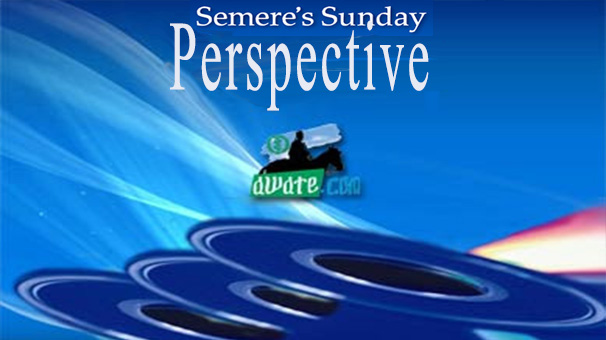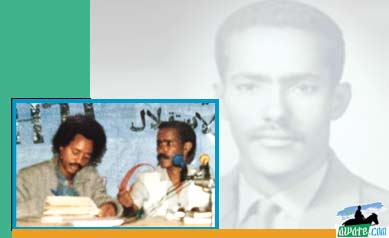The Eritrean Opposition’s Double Bind

The Eritrean opposition finds itself caught in a dilemma of its own making. On one hand, we pursue a rigid moral absolutism, refusing to collaborate with anyone we deem ideologically compromised—whether for lacking sufficient nationalist conviction, secular orientation, or political independence. On the other hand, we recoil from those perceived as ethnic chauvinists, religious or linguistic supremacists, or actors indifferent to the lived injustices endured by marginalized communities.
This dual rejection has produced a culture of widespread delegitimization. Over the years, countless actors have been casually dismissed—branded as Weyane proxies, NIF affiliates, stooges of Sana’s Forum, or agents of the ruling regime’s ethnic, religious, and linguistic hegemony. Others are labeled land grabbers or supremacists, often without substantive engagement. These labels, more exclusionary than explanatory, have become tools of disqualification rather than instruments of discernment.
The result is a paralyzing dynamic that social scientists call horizontal hostility—a corrosive pattern in which groups with overlapping goals sabotage one another instead of forging coalitions. This hostility fractures our ranks, erodes trust, and perpetuates the very divisions we claim to oppose.
This pattern has fractured our ranks and stunted our collective potential. If we are to move forward, we must confront this hostility head-on—with principled pragmatism, not purity politics.
On the other hand, we understand that meaningful change demands broad alliances. Yet the tension between moral absolutism and strategic coalition-building has left us fragmented, ineffective, and increasingly irrelevant.
This Sunday, I want to examine how our pursuit of purity has undermined our capacity for unity, and why principled collaboration, not perfection, is the only path forward.
Mission Without Vision
Compounding this dilemma is a conceptual gap within our opposition. While there is strong consensus on the mission—ending authoritarian rule and restoring dignity to our people—many organizations have failed to articulate a coherent vision. Mission defines what we seek to accomplish, and vision clarifies how we imagine the future once that mission is achieved. Mission is our compass, but without a shared vision, our destination, even the most determined efforts risk wandering. Not all roads lead to Asmera, and not every alliance moves us forward.
With clarity of purpose, the challenge of identifying and filling roles—often where we lose momentum—becomes secondary and intuitive. We already possess a broad membership with diverse skill sets and mindsets. But without a coherent vision, strategy devolves into reaction, and alliances remain shallow and transactional. In the absence of a shared horizon, we find ourselves navigating by grievance rather than by purpose. We are clear on what we oppose, yet we continue to struggle in articulating what we collectively affirm.
Gedab News reported yesterday, August 30, 2025, the merger of three opposition organizations—an encouraging development, at least in principle. Yet given our history, skepticism is not only warranted, it is essential. What distinguishes this initiative from past failures? What mechanisms exist to ensure it does not become another fleeting experiment?
In Negarit 340, about a week ago, Mr. Gerezgher Tewelde, chairman of EPDP, highlighted a similar and parallel initiative—also referenced in the same Gedab News report. This convergence of efforts could mark a genuine turning point, but only if it is anchored in transparency, accountability, and a shared vision that transcends the patterns of fragmentation and mistrust that have long plagued us.
It is not unreasonable to imagine these new efforts as a solemn pledge—one coalition, under God, indivisible. It is time to take an oath: no more fragmentations. Or as we say in Tigrinya, with urgency and hope: ጸጸር ውሓጡ:: ህዝቢ ኸኣ ክምርቐኩም ‘ዩ ከም’ዚ ኢሉ: “ዝተዛረብክምዎ ቀልም: ዝረገጽክምዎ ለምለም: ምስኹም ይኹን ረቢ መድሕነ ዓለም::”
Failed Coalitions, Fading Credibility
Even our attempts to build umbrella coalitions, such as the Eritrean Democratic Alliance (EDA) in 2011 or the Eritrean National Conference for Democratic Change (ENCDC) in 2014, have failed to attract all organizations or garner broad-based support. Instead of pooling our resources to confront the regime, we expend our energy policing each other’s purity. The quest for unity has remained elusive.
I know this first-hand. As part of the now-defunct organization Medrekh, I invested considerable time and energy trying to bring groups together. We failed. Our efforts were transactional—lacking depth, seriousness, sincerity, and the structural integrity the moment demanded. That experience taught me a hard truth: good intentions alone are not enough. Without structure, trust, and a shared vision, even the most well-meaning initiatives will falter.
I own that failure. I carry it with me—not as a burden, but as a lesson. I am sorry. And I remain hopeful that I will find a way to make amends, not just in words, but in action.
The result? Lost credibility, missed opportunities, and deepening hardship for the very people we claim to represent.
Let the record speak. Here is a partial list of coalition efforts that have come and gone: UL-ELF-O (1989), EDLF (1991), ENPA (1992), DUE (1996), AENF (1999), ENA (2002), Four+One, ENDF (2004), ENSF (2004), EDF (2005), and others. Civic societies, including those I’ve been part of, fared little better, though their resume of failure is less extensive.
Some coalitions still exist, technically. But few would say they are alive. To exist without living, that is the deepest tragedy. Inanimate objects exist. Movements must live.
The Tyranny of Purity
At the heart of our paralysis is a stubborn refusal to work across differences. Too often, we elevate ideological purity, strategic orthodoxy, historical loyalty, or rigid adherence to our own narratives above shared goals and values. In doing so, we alienate potential allies and squander chances to build something greater than ourselves.
The result is a landscape of isolated factions, each convinced of its moral or strategic superiority, yet none with the strength or legitimacy to lead a unified movement.
This mindset may feel emotionally satisfying, but it has become rigid and corrosive. It shuts down debate, rewards purity, and leaves no room for strategy. And with the passage of unforgiving time, these factions are not evolving. They are atrophying, inching toward irrelevance and eventual demise.
This is further exacerbated by the fact that the opposition doesn’t take winning as a core value. Winning isn’t just about defeating the regime. It’s about building viable alternatives, shifting public opinion, and creating institutions that endure. Without activities designed to make a difference, existence becomes symbolic defiance rather than strategic engagement. It suffers from lack of leadership.
A Chorus of Princes, No One Leading
When everyone insists on leading, no one truly leads. As the Arab proverb warns:
أنا أمير وأنت أمير، فمن يسوق الحمير؟
“I am a prince and you are a prince, who will lead the donkeys?”
Without humility, compromise, and a shared vision, our movement risks becoming a chorus of self-appointed leaders, each pulling in a different direction while the burden of change remains unmoved.
We must find a way to coalesce and allow leadership to emerge. Not everyone can be the torchbearer, and not every disagreement must be a dividing line. Leadership is not about domination. It’s about coordination, trust, and shared purpose. If we continue to insist that only our version of truth is valid, we will keep circling the same dead ends.
The people we claim to represent deserve more than principled isolation. They deserve principled collaboration.
Clarity vs. Effectiveness
This isn’t merely a tactical misstep. It’s a deeper mindset. We often confuse moral clarity with political effectiveness. We assume that if we’re righteous enough, change will follow. But history tells a different story. Movements that succeeded, across the globe, did so not by staying pure, but by being inclusive and messy. They brought together people from different backgrounds and beliefs, recognizing that unity doesn’t dilute principle, it fortifies it.
In our case, the stakes couldn’t be higher. The regime maintains its grip not only through force, but through our disunity. Diaspora communities, once brimming with hope, now oscillate between frustration and quiet resignation. Many in the younger generation, eager to contribute, inherit a fractured legacy—one that celebrates resistance but rarely models collaboration.
Existential Quietism and Caustic Morality
This is where existential quietism creeps in, the belief that staying detached and refusing to engage with “impure” actors is itself a form of resistance. But in truth, it’s a retreat, a quiet acceptance of injustice dressed up as moral strength. Instead of organizing bold action, we settle for symbolic gestures. It may feel noble, but it doesn’t move us forward.
Then there’s caustic morality, a harsh kind of virtue that repels anyone who doesn’t meet our standards. We draw lines instead of building bridges. We treat compromise as betrayal, dialogue as weakness, and coalition as contamination.
And while we argue among ourselves, the regime watches and benefits. It thrives on our divisions. We spend more time policing each other than planning together. Without a shared vision, one that centers the dignity and future of our people, we risk fading into irrelevance.
Toward Principled Collaboration
To move forward, we must rethink our approach. We need to stop performing resistance and start practicing solidarity. That means embracing ideological diversity, building real institutions, and learning to be patient and strategic. It also means cultivating humility, recognizing that no single group holds all the answers, and that real change requires listening as much as leading.
We need humility. We need patience. We need courage.
We can break this double bind, but only if we’re honest with ourselves. Yes, moral clarity matters. But without unity and action, it becomes a mirror reflecting our own helplessness. Eritrea’s future depends not only on rejecting tyranny, but on shedding the habits that keep us divided and stuck.
As the Tigrinya saying goes:
ኣድጊ ሞይቱ ኢልካ መገሻ ነይተርፍ-“Just because the donkey is dead doesn’t mean the journey is over.”
Even when our tools fail, the need for movement remains.
The Road Ahead
This is not a declaration of despair. If there were no hope, I wouldn’t be writing this. But any serious new enterprise must face this reality head-on, own the failure, and chart a new path for transformation. The people deserve more than principled isolation. They deserve principled collaboration.
_____
I’ll be sharing my reflections every Sunday. If you share similar convictions, feel free to reach out via email: weriz@yahoo.com



Awate Forum